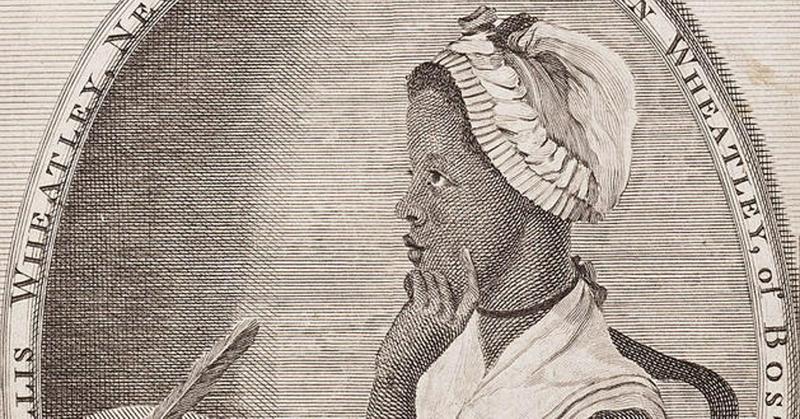Phillis Wheatley, America's First Published Black Poet
By | December 15, 2021

Phillis Wheatley lived a remarkable life full of triumph over adversity. She the first African-American poet to be published in the New World and the first black woman to become a household name in the fledgling United States, but she had to prove herself again and again, even in a court of law.
Becoming Phillis
Wheatley was only seven years old in 1761, when she was kidnapped from her home in Senegal, forced aboard the slave ship The Phillis, and sold to John Wheatley to be his wife's personal slave. They named her Phillis after the ship that carried her, and Little Phillis quickly learned English and acclimated to her new reality as a slave.
John and Susanna Wheatley valued education for all people and recognized Phillis's potential. They even spared her household chores so she could devote more time to her studies. Their daughter, Mary, became Phillis's first tutor, teaching her how to read and write. Phillis proved to be a brilliant student, mastering arithmetic, astronomy, Greek, and Latin, but where she shined the brightest was in poetry.

Poetic Justice
Inspired by the works of classic writers like Homer, Virgil, and John Milton, Phillis Wheatley started writing her own poetry when she was just a teenager. The Wheatleys loved to show off how brilliant she was, and John Wheatley became her informal literary agent. The Newport Mercury published her first poem, a piece she wrote when she was just 13 years old, in 1767, and within six years, she had published her first book of poetry, Poems On Various Subjects, Religious And Moral.
Her poems made her famous across the colonies, but the attention she earned attracted trouble as well. Many critics in and around Boston refused to believe a young slave girl could write such exquisite poems. Wheatley was actually put on trial in 1772 for the dubious crime of impersonating a poet, questioned and tested until her accusers were satisfied that she was indeed a perceptive, thoughtful person.
Although the institution prevailed for another century, the trial of Phillis Wheatley put the first significant dent into the belief of the American slave-owning class that people of African descent were less intelligent and better off as slaves. The next year, the Wheatleys freed Phillis, who settled down with another free black man a few years later, but happily ever after, it was not. Despite being the most famous black American at the time, Phillis and her family were poor and sickly, and she struggled for the next 10 years to provide for her children and keep them alive. Tragically, all three of them died, as did she in 1784 at only 31 years old.

